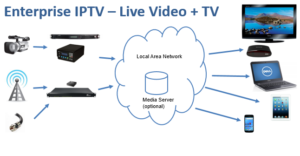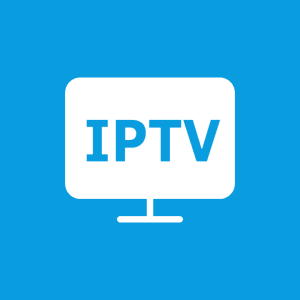Just How IPTV Can Change Your Viewing Experience
Just How IPTV Can Change Your Viewing Experience
Blog Article
IPTV Explained: Why It's Transforming the Way We Enjoy Television
The emergence of Web Procedure Tv (IPTV) symbolizes a crucial change in how audiences involve with material. As we discover the complexities of IPTV, it comes to be apparent that this advancement is not simply a trend; it presents significant ramifications for the future of tv consumption and the landscape of digital entertainment.
What Is IPTV?
IPTV, or Web Procedure Tv, is a technique of supplying television material over the net instead of with typical satellite or cable television layouts. This cutting-edge approach makes use of net protocol networks to transfer video clip information, permitting customers to access a vast array of programs straight using their internet connection. Unlike standard broadcasting, which relies upon radio waves or cable framework, IPTV enables the streaming of content in a much more user-centric and versatile way.
Among the vital advantages of IPTV is its ability to offer on-demand access to a huge collection of programs, flicks, and live programs. Customers can delight in individualized watching experiences, consisting of the alternative to stop, rewind, or document web content. In addition, IPTV solutions often include interactive functions, such as video clip as needed, catch-up television, and the ability to access multiple tools simultaneously.

How IPTV Works

The procedure begins with material gathering, where numerous tv channels and programs are compiled onto a central web server. From this web server, the content is encoded into digital styles ideal for streaming. When a customer chooses a program, the IPTV solution fetches the suitable information packages from the web server and transmits them to the individual's device.
IPTV normally works via set-top boxes or smart Televisions, which decode the incoming data and render the video for seeing. The innovation uses flexible bitrate streaming to enhance video clip high quality based upon the individual's web rate, making certain a smooth watching experience. Furthermore, IPTV frequently integrates interactive functions such as accessibility, rewind, and time out to a virtual library, enhancing user involvement. Generally, IPTV stands for an advanced combination of technology that changes conventional television watching into an extra vibrant and tailored experience.
Advantages of IPTV
As audiences increasingly seek versatility and modification in their enjoyment selections, IPTV supplies a series of advantages that satisfy these demands. One of one of the most considerable advantages is the ability to accessibility material on various devices, consisting of mobile phones, tablets, smart Televisions, and computers - Iptv. This multi-device compatibility allows customers to enjoy their favored programs and motion pictures anytime, anywhere, enhancing their watching experience
Furthermore, IPTV provides an extensive collection of on-demand content, making it possible for customers to choose what to see, when to view it, and how to enjoy it. This contrasts with traditional broadcasting approaches, where audiences are often constricted by fixed routines. Additionally, IPTV solutions frequently use personalization functions, such as customized suggestions based upon viewing routines, allowing users to find new web content fit to their choices.
Furthermore, IPTV commonly includes sophisticated attributes like cloud DVR capabilities, allowing customers to videotape and keep programs for later watching. Boosted interactivity, such as the ability to stop briefly, rewind, or fast-forward material, further enhances the viewing experience. Iptv. Collectively, these benefits setting IPTV as an engaging choice to conventional tv, satisfying the advancing expectations of today's target markets
Contrast With Traditional TV
Conventional television and IPTV present distinct viewing experiences, each catering to various target market choices. Typical television relies on wire, satellite, or terrestrial signals, offering a repaired routine for broadcasting. Customers are usually bound to specific time slots to watch their favorite shows, which can be inconvenient in today's fast-paced environment.
On the other hand, IPTV delivers web content using the net, permitting customers to stream programs and movies on-demand. This flexibility enables visitors to see web content at their comfort, removing the restrictions of an established routine. Additionally, IPTV services usually provide accessibility to a broader array of networks and content, including international programs and niche styles that standard cable packages might not offer.
In addition, the interactivity of IPTV enhances user engagement, enabling attributes such as pause, rewind, and document capabilities that typical television lacks. Customers can also access supplemental web content, including detailed program overviews and audience ratings, enhancing the overall watching experience.
Ultimately, while conventional tv stays a staple for numerous visitors, IPTV's versatility and wide range of content make it an increasingly prominent choice, interesting those seeking even more control over their seeing routines.
Future of IPTV
The future of IPTV appears appealing, driven by advancements in innovation and changing consumer preferences. As broadband framework proceeds to improve internationally, IPTV solutions are poised to provide higher-quality video clip web content with minimal buffering and improved individual experiences. This development is matched by the proliferation of smart gadgets, helpful site making it possible for viewers to gain access to IPTV material on smart devices, tablet computers, and smart TVs, hence enhancing benefit and wheelchair.
Furthermore, the integration of expert system and artificial intelligence into IPTV platforms is expected to change content shipment. Tailored suggestions based on seeing practices will improve individual engagement, making it much easier for customers to find appropriate material. Furthermore, the consolidation of enhanced truth (AR) and virtual reality (VIRTUAL REALITY) technologies holds the possible to develop immersive watching experiences that typical tv can not match.
The increase of subscription-based designs and ad-supported streaming services indicates a change in just how customers are willing to spend for web content, additionally fueling IPTV's growth. As even more customers seek flexibility and customization in their viewing practices, IPTV is likely to come to be a leading force in the home entertainment landscape, improving exactly how content is produced, dispersed, and consumed in the coming years.
Conclusion
Finally, IPTV stands for a transformative innovation in television usage, supplying visitors unprecedented versatility and control over their viewing experiences. Its ability for on-demand gain access useful content to, individualized web content, and interactive functions identifies it from typical broadcasting methods. As modern technology continues to evolve, the possibility for IPTV to further impact media consumption patterns and improve the enjoyment landscape remains considerable. This shift emphasizes view website the value of adapting to arising technologies in a progressively digital world.
The emergence of Web Method Television (IPTV) represents an essential change in how audiences involve with web content.IPTV, or Net Protocol Television, is a technique of supplying tv material over the internet rather than with standard satellite or wire formats.Utilizing a network of web procedures, IPTV provides tv web content via a series of distinct procedures. In addition, IPTV solutions regularly supply personalization features, such as tailored recommendations based on seeing practices, enabling individuals to uncover brand-new material matched to their choices.
In addition, IPTV solutions usually provide access to a more comprehensive range of networks and material, including worldwide shows and particular niche styles that typical wire plans may not provide.
Report this page